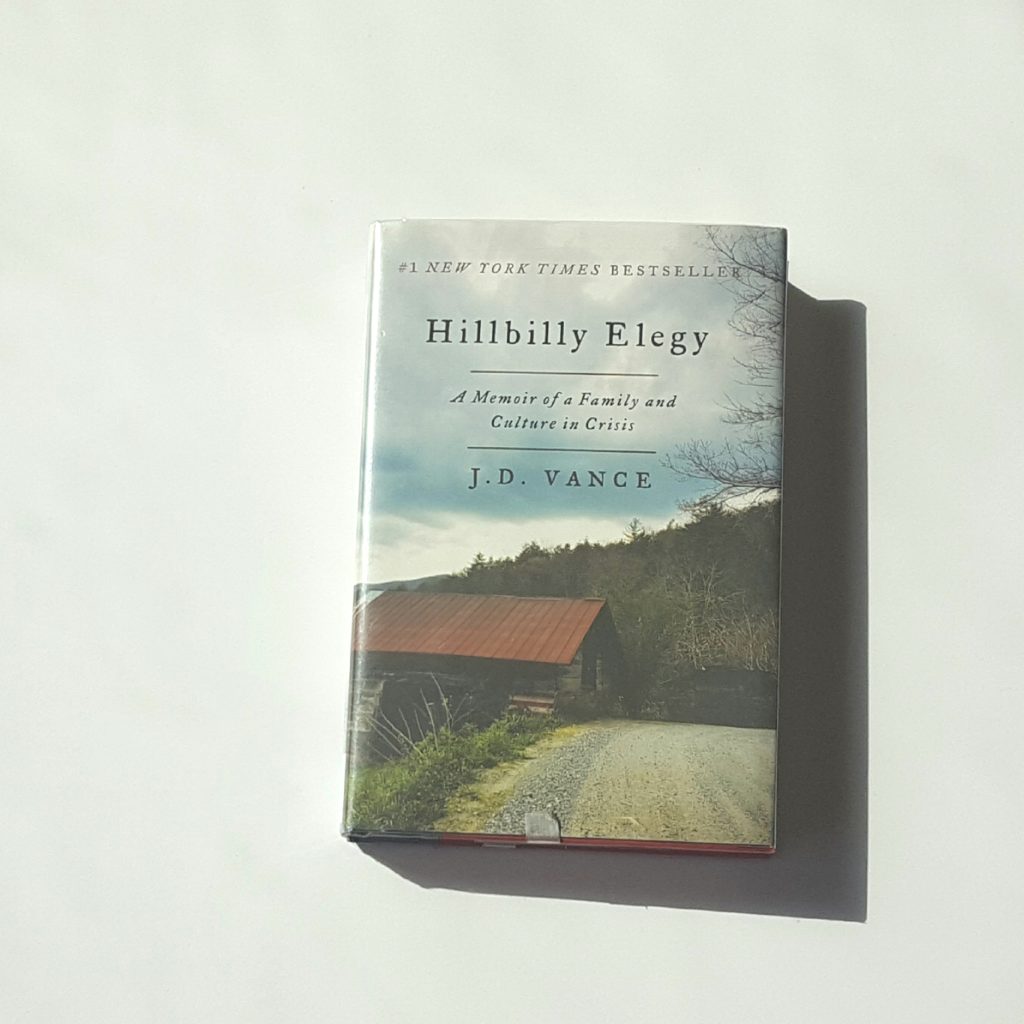A few months ago, I stumbled across Hillbilly Elegy and put it on my to-read list. A short time later, when one of my book clubs announced it as their June pick, I knew I wouldn’t be skipping that meeting. I was fascinated by his hillbilly-to-Silicon-Valley-investor Cinderella story. This wouldn’t be America without a few rags to riches tales!

There was a second component to the buzz surrounding this book. People said it provided a key insight into the mind of a Trump voter. I live in the San Francisco Bay Area, where the majority of residents bleed liberal blue, line up for the latest iPhone without a second thought to their financial state, and are, for the most part, highly educated. People here are quick to call out the red states as ignorant, uneducated and racist.
And J.D. Vance confirms many of those stereotypes in this book. It’s an interesting memoir-slash-anthropological observation of the world he comes from. He grew up in Ohio, which doesn’t sound so obscure, really. But his family comes from the hills of Kentucky, where they refer to small living communities as hollers. Due to a major migration from Kentucky to Middletown, Ohio, the author refers to his hometown as “Middletucky.”
This is a part of the world where people put Mountain Dew in their small childrens’ sippy cups and pessimism runs rampant. Many don’t expect to get a job anywhere outside of a coal mine or a Walmart, so education isn’t prioritized. New York and Kentucky may fall under the same national flag, but culturally they seem worlds apart.
It’s no wonder someone like Donald Trump, despite his wealth and Manhattan upbringing, would appeal to these folks by playing off their pessimism to promise them a better life. This demographic’s inclination to redirect their anger toward immigrants and workers across the world who’ve taken outsourced American jobs was also a major motivator for voting for Trump.
I have little interest in getting political, but from a sociological perspective, a lot of puzzle pieces fall into place in the pages of this book. I wish every American could live a day in the shoes described here – but then, I wish the opposite were true as well.
In this memoir, there’s sad, happy and sad. J.D. Vance’s mother threatened to kill him once, but his gratitude for his grandmother’s support is ubiquitous. As a reader, I really started to feel happy for him when he began to experience upward mobility in the final third of the book. He goes to boot camp and learns how to discipline and care for his body. He returns home and speeds through college in three years while working up to three jobs. Eventually he is accepted to Yale Law school and wades through this whole new world of schmoozing and landing job offers through an informal network.
Something that stood out to me personally toward the end of this book was this quote: “Though we sing the praises of social mobility, it has its downsides. The term necessarily implies a sort of movement – to a theoretically better life, but also away from something. And you can’t always control the parts of your old life from which you drift.”
J.D. Vance is honest in his prose. He truly comes across as someone who’s simltaneously trying his best and reflecting on his beginnings. I recently read that he’s moving back to Ohio to start an organizatio to help combat the state’s opioid epidemic. Personally, I see politics in his future but time will tell.
“Fear most all that I hadn’t escaped a goddamned thing. Months away from graduating from Yale Law, I should have felt on top of the world. Instead, I found myself wondering the thing I’d wondered for much of the past year: whether people like us can ever truly change.”
Leave a Reply